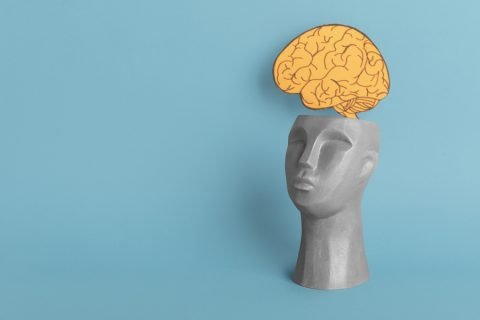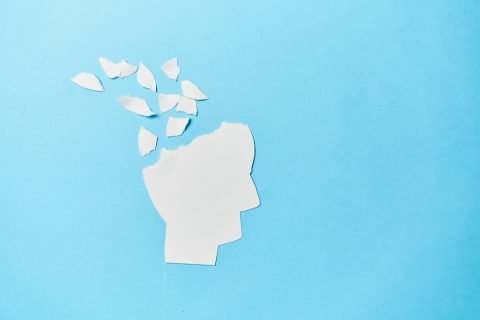Medically Reviewed by:
Khushal Girigosavi, a peer reviewer at the Cureus Journal with numerous research papers to his name, maintains high standards in medical research.
Have you ever wondered what the difference is between Alzheimer’s disease and dementia? It’s a question that often arises when discussing cognitive disorders, and it’s important to understand the distinction. Alzheimer’s disease and dementia are two terms that are often used interchangeably, but they are not the same thing.
In this blog post, we will explore the key differences between Alzheimer’s disease and dementia, including their causes, symptoms, and treatment options. By gaining a better understanding of these conditions, we can work towards creating a more inclusive and supportive environment for those affected.
So let’s dive into this topic together and shed light on the difference between Alzheimer’s disease and dementia.

Understanding Alzheimer’s disease vs dementia
Let’s start by talking about dementia. Dementia is an umbrella term that refers to a group of symptoms affecting memory, thinking, and social abilities to the point where it interferes with daily functioning. It is not a specific disease but rather a set of symptoms caused by various conditions, including Alzheimer’s disease.
On the other hand, Alzheimer’s disease is a specific type of dementia. It is the most common form of dementia, accounting for 60-70% of all cases. Alzheimer’s disease is a progressive neurodegenerative condition that affects the brain, leading to memory loss, confusion, and changes in behaviour. While all individuals with Alzheimer’s have dementia, not everyone with dementia has Alzheimer’s.
Myth: Alzheimer’s and dementia are two names for the same condition.
Fact: False. Alzheimer’s is a specific type of dementia, and dementia encompasses various cognitive disorders.
What is dementia?
Let’s delve into these concepts a little deeper. When we talk about dementia, we’re talking about a broad range of neurodegenerative conditions that affect the brain. These conditions result in a decline in cognitive abilities, such as memory loss, confusion, difficulty communicating, and problems with reasoning and problem-solving. Dementia can also lead to changes in mood and behaviour.

What is Alzheimer’s disease?
On the other hand, Alzheimer’s disease specifically refers to a progressive brain disorder that slowly destroys memory and thinking skills. It is the most
common cause of dementia, accounting for approximately 60-70% of all cases. In Alzheimer’s disease, abnormal protein deposits form plaques and tangles in the brain, disrupting communication between nerve cells and eventually leading to their death.
What is the difference between Alzheimer’s and dementia?
While both dementia and Alzheimer’s disease present similar symptoms, there are some differences worth noting. One key distinction is that dementia is an overall term encompassing various conditions beyond just Alzheimer’s. These other types of dementia include vascular dementia (caused by reduced blood flow to the brain), Lewy body dementia (characterized by abnormal protein deposits called Lewy bodies), frontotemporal dementia (affecting the frontotemporal lobes of the brain), and many more.
Another difference lies in the progression of these conditions. While all forms of dementia are progressive and worsen over time, Alzheimer’s disease typically progresses slowly, with symptoms gradually worsening over several years. It usually starts with mild memory loss and confusion and eventually impairs the ability to carry out daily tasks independently.
It’s important to remember that dementia is a syndrome, while Alzheimer’s disease is a specific type of dementia. Diagnosis and treatment can be complex, requiring careful evaluation by healthcare professionals. If you or a loved one are experiencing cognitive difficulties, it’s essential to seek medical advice for an accurate diagnosis and appropriate management.
Why should we know the difference between Alzheimer’s and dementia?
Understanding the difference between Alzheimer’s disease and dementia is crucial because it helps us provide appropriate care and support to individuals affected by these conditions. It also allows researchers and healthcare professionals to develop targeted treatments and interventions. By knowing what to expect and how to support loved ones, we can enhance their quality of life and ensure they receive the care they need.
Myth: Only the elderly get Alzheimer’s or dementia.
Fact: False. While most people who suffer from Alzheimer’s Disease are elderly, about 5% suffer from Early Onset Alzheimer’s Disease (EOAD) which affects people less than 65 years old. The youngest person to be ever diagnosed with Alzheimer’s was just 19 years old.
How do we diagnose dementia versus Alzheimer’s disease?
Distinguishing between Alzheimer’s disease and other types of dementia involves a thorough evaluation, including medical history, cognitive assessments, blood tests (to detect beta-amyloid) and, sometimes, imaging studies.
For both Alzheimer’s and dementia, early diagnosis is crucial. While there is no cure for Alzheimer’s, early intervention can help manage symptoms, enhance the quality of life, and provide support for both individuals and their families. Some reversible causes of dementia, such as vitamin deficiencies and thyroid problems, can be addressed through appropriate medical interventions.
Distinguishing between Alzheimer’s disease and other types of dementia involves a thorough evaluation, including medical history, cognitive assessments, blood tests (to detect beta-amyloid) and, sometimes, imaging studies.
For both Alzheimer’s and dementia, early diagnosis is crucial. While there is no cure for Alzheimer’s, early intervention can help manage symptoms, enhance the quality of life, and provide support for both individuals and their families. Some reversible causes of dementia, such as vitamin deficiencies and thyroid problems, can be addressed through appropriate medical interventions.
Treatment approaches
While there is no cure for Alzheimer’s disease, various treatments and interventions aim to manage symptoms, slow progression, and improve the quality of life for affected individuals. Medications such as Cholinesterase inhibitors (Rivastigmine, Donepezil, Galantamine) and/or Memantine may be prescribed to alleviate cognitive symptoms, slow the disease progresson and improve daily functioning.
Non-pharmacological interventions, including cognitive stimulation therapy, physical exercise, and behavioural therapies, are integral components of comprehensive care plans. Additionally, support groups and counselling can provide emotional support for both individuals with dementia and their caregivers.
For certain types of dementia, such as vascular dementia, addressing underlying vascular risk factors through lifestyle modifications and medical interventions can help slow or prevent further cognitive decline.
Conclusion: Navigating the complexity
In conclusion, while Alzheimer’s disease and dementia share common ground in terms of cognitive impairment, they represent distinct entities with different causes, characteristics, and treatment approaches. Understanding the differences between the two is crucial for accurate diagnosis, appropriate interventions, and the development of effective support systems for individuals and their families.
As research continues to unravel the mysteries of the brain, advancements in diagnostic tools and therapeutic strategies offer hope for improved outcomes. In the meantime, raising awareness, fostering a supportive community, and promoting healthy lifestyles remain pivotal in the fight against these formidable adversaries. By working together, we can strive to enhance the lives of those affected by Alzheimer’s disease and dementia and move closer to a future free from the burden of cognitive decline.
If you suspect that you or someone you know may be experiencing symptoms related to dementia or Alzheimer’s disease, it is essential to consult with a healthcare professional for a proper diagnosis. They can provide further guidance and administer tests that can help shed light on the underlying cause of cognitive decline.
Additionally, there are resources available online and in-person that can provide support and information to individuals living with dementia or caring for someone with the condition. These resources can offer practical tips for managing daily activities, emotional support, and connections with others who may be going through similar experiences.
Remember, knowledge is power. By learning about the differences between Alzheimer’s disease and dementia, you are equipping yourself with valuable insights that can aid in navigating this complex journey. Stay informed, seek support, and never hesitate to reach out for assistance when needed.
f you would like to learn more about neurodegenerative conditions like Alzheimer’s disease or dementia, which directly affect brain health, memory loss, and cognitive age, check out liveivory.com. Our team of experts is dedicated to providing valuable information and resources to help you better understand these conditions and find ways to live your best life while managing these critical aspects of cognitive health.




